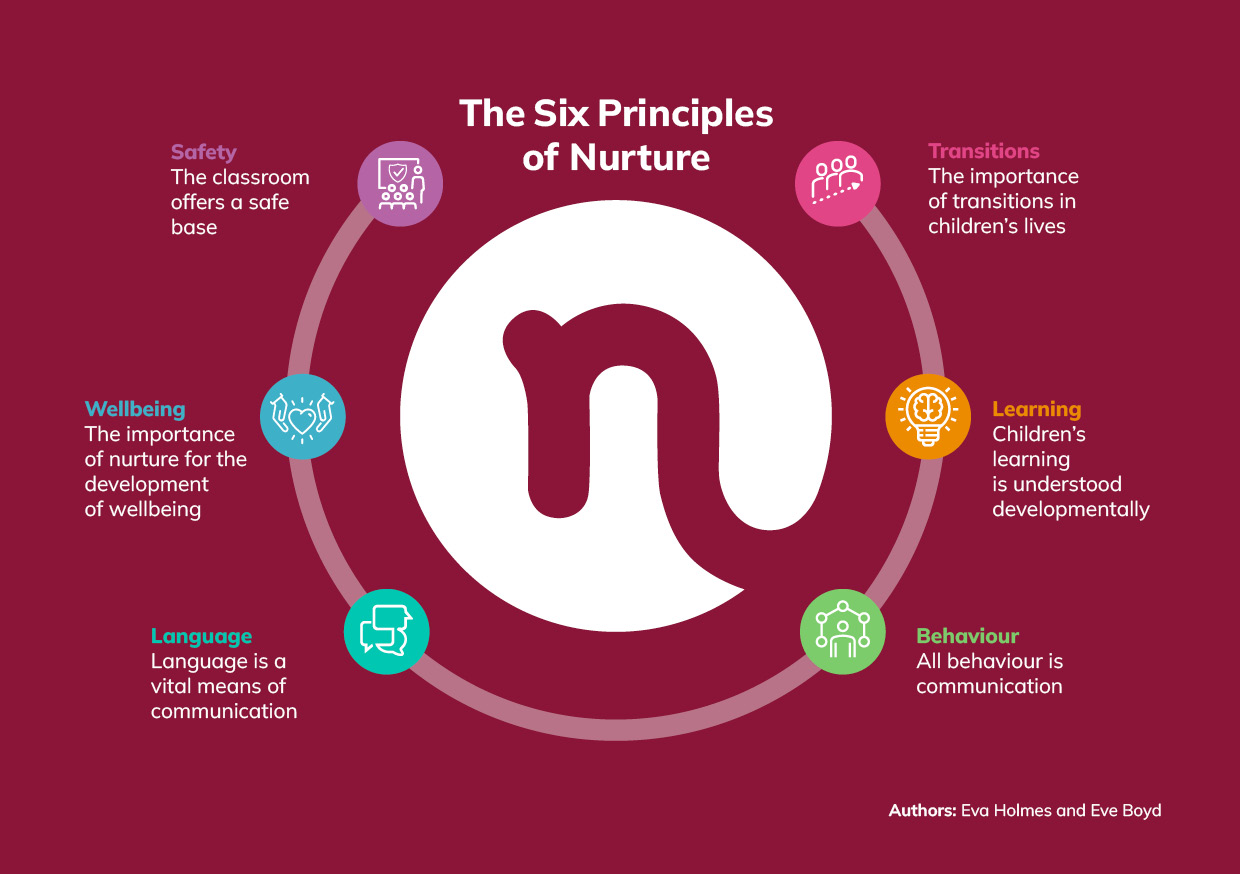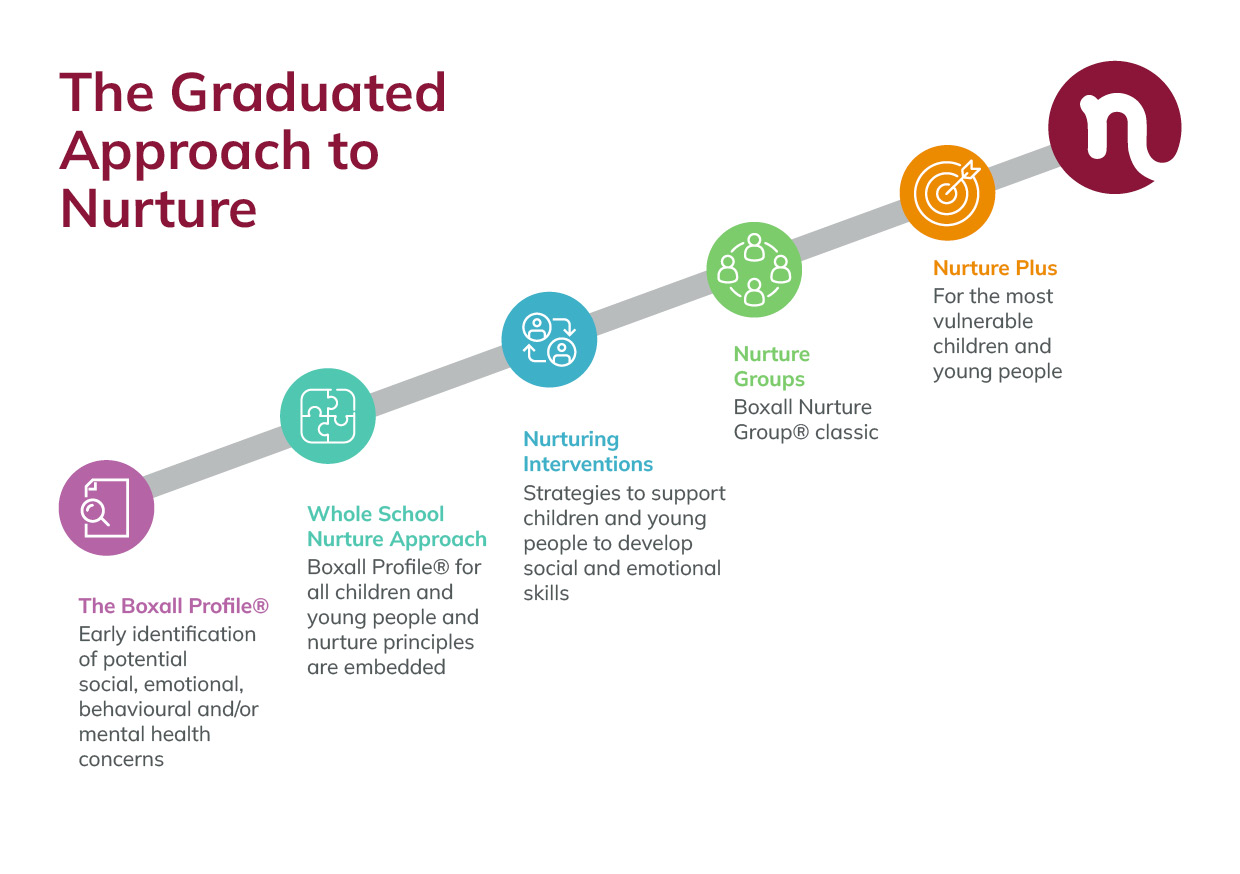What is nurture?
Nurture is a tried and tested way of relating to children that helps them develop vital social skills, confidence and self-esteem, and become ready to learn.
The concept of nurture highlights the importance of social environments – who you are with and not who you are born to – and its significant influence on social and emotional skills, wellbeing and behaviour.
The nurturing approach to education offers a range of opportunities for children and young people to engage with missing early nurturing experiences, giving them the social and emotional skills to do well at school and with peers, and to develop their resilience and self-confidence. It encourages pupils to take pride in achieving - addressing the social and emotional needs that can hamper learning.
The Six Principles of Nurture
Everything we do has been based on and guided by the Six Principles of Nurture. For example, our National Nurturing Schools Programme is based on the Six Principles of Nurture that have successfully underpinned nurturing approaches for over 50 years.
Today there are hundreds of National Nurturing Schools around the UK. Teachers are trained to focus on the social and emotional needs and development, as well as the academic learning of all pupils, and to embed the Six Principles of Nurture throughout the policies and practices of a school.

Nurture in the classroom
We offer schools a range of tools and resources to address pupils’ social, emotional and mental health needs. The aim isn’t for teachers to focus on the children with the greatest needs, but to develop an inclusive, whole-class approach that allows them to access all their pupils.
Our nurturing tools and resources can be used throughout the school day (in the classroom or in small groups) to help children develop the skills they need to engage with their learning and make the most of their time at school.
These strategies could include:
- Making time for social and emotional learning, either during targeted PSHE lessons or by embedding it throughout the curriculum.
- Giving pupils the opportunity to practice their social and emotional skills, for example by encouraging them to work in pairs and groups.
- Modelling good social and emotional skills themselves, when interacting with pupils and other staff members.
- Monitoring the social and emotional wellbeing of the whole class, using assessment tools like The Boxall Profile®.
The Graduated Approach to Nurture
Our graduated approach to nurture ensures that every child in the school has the opportunity to flourish in their education. It ensures that every child has access to the support they need, when they need it.
Through this approach, we work to measure and support the social, emotional and mental health of all children, so no child falls through the cracks.


